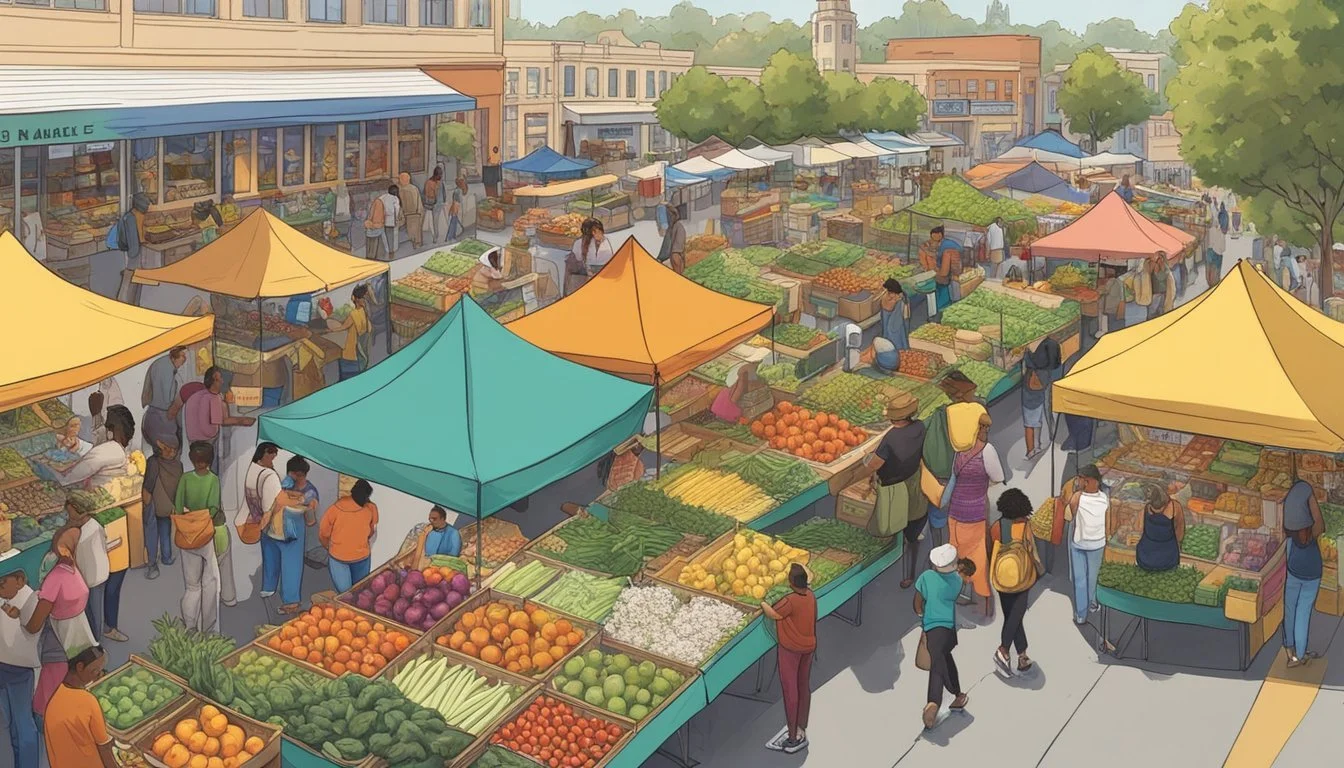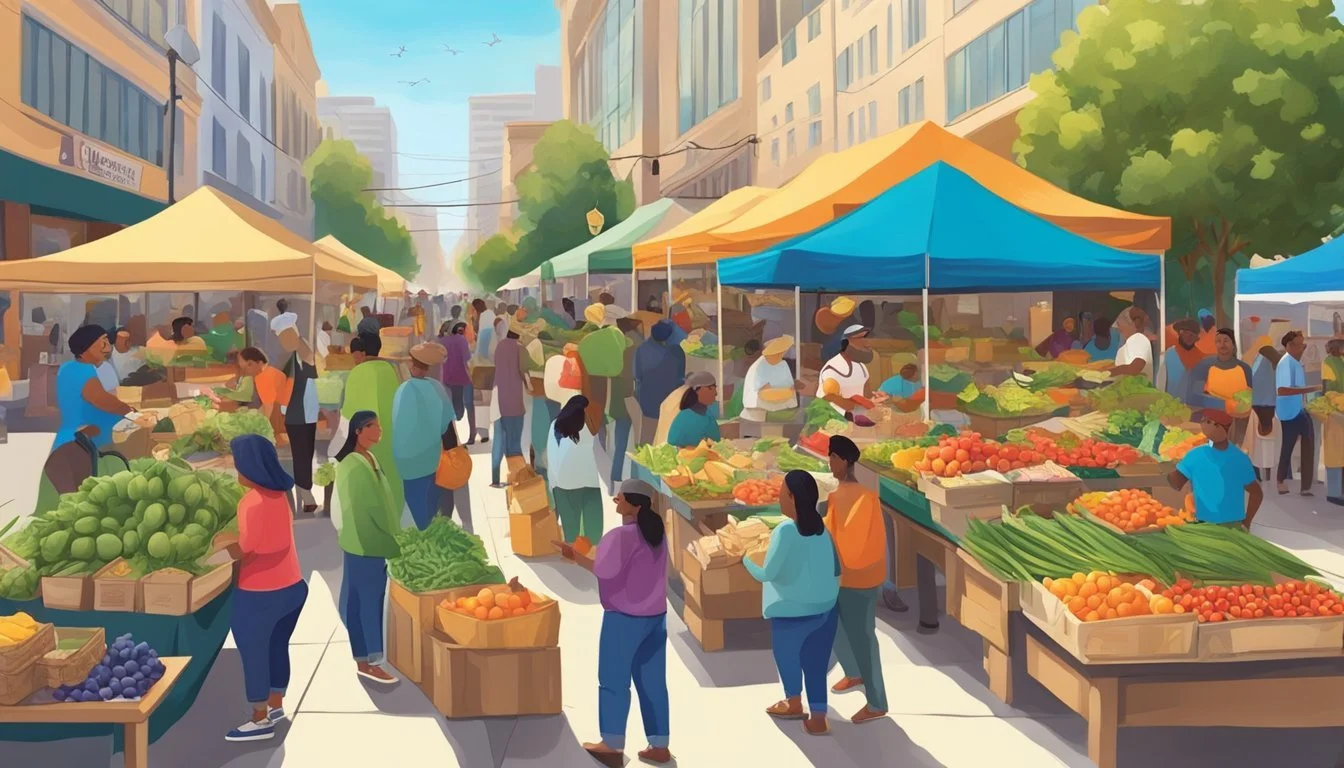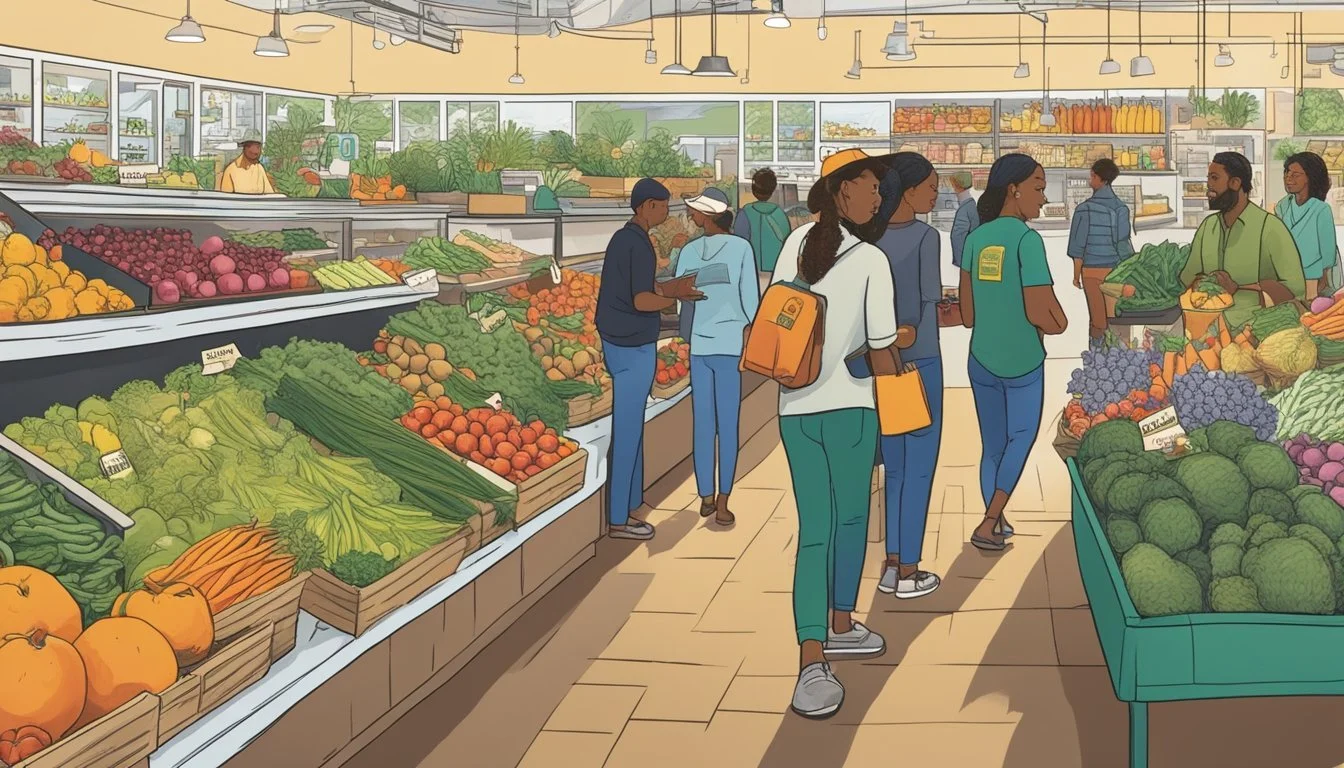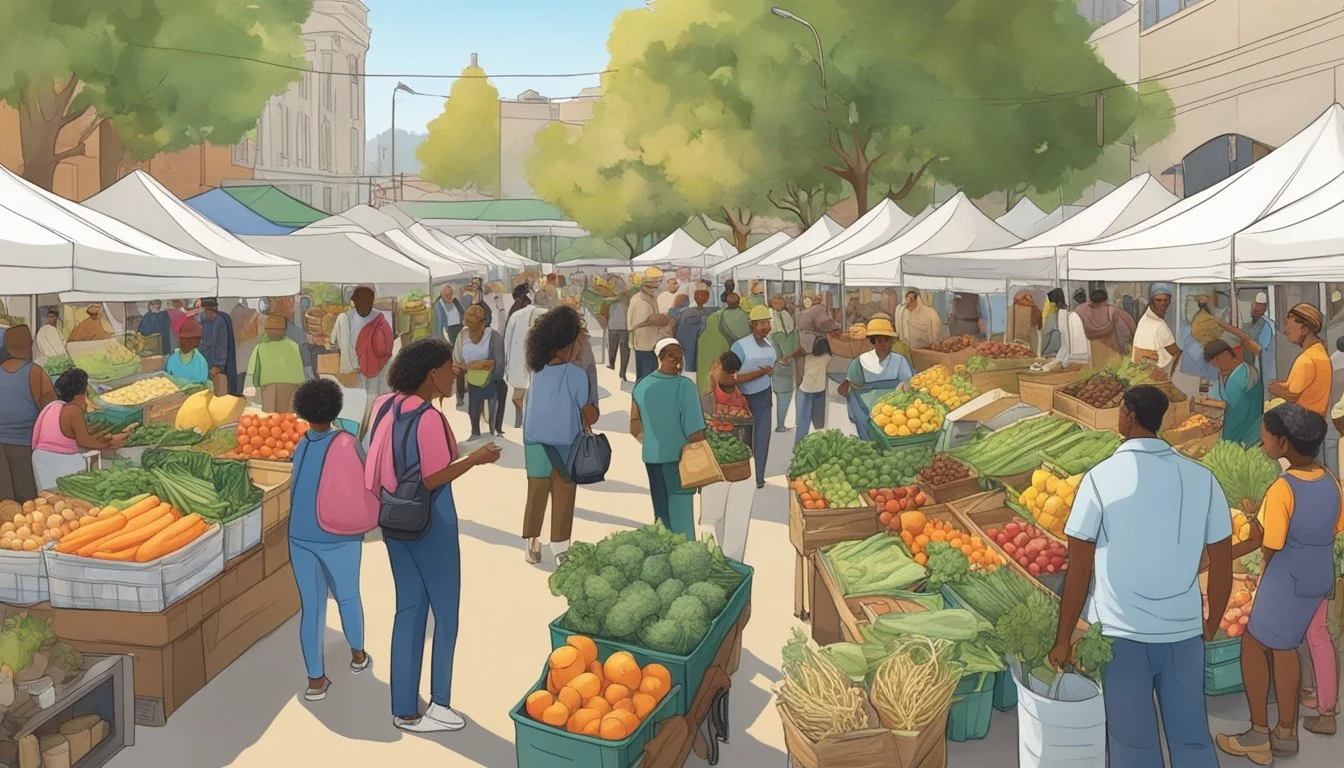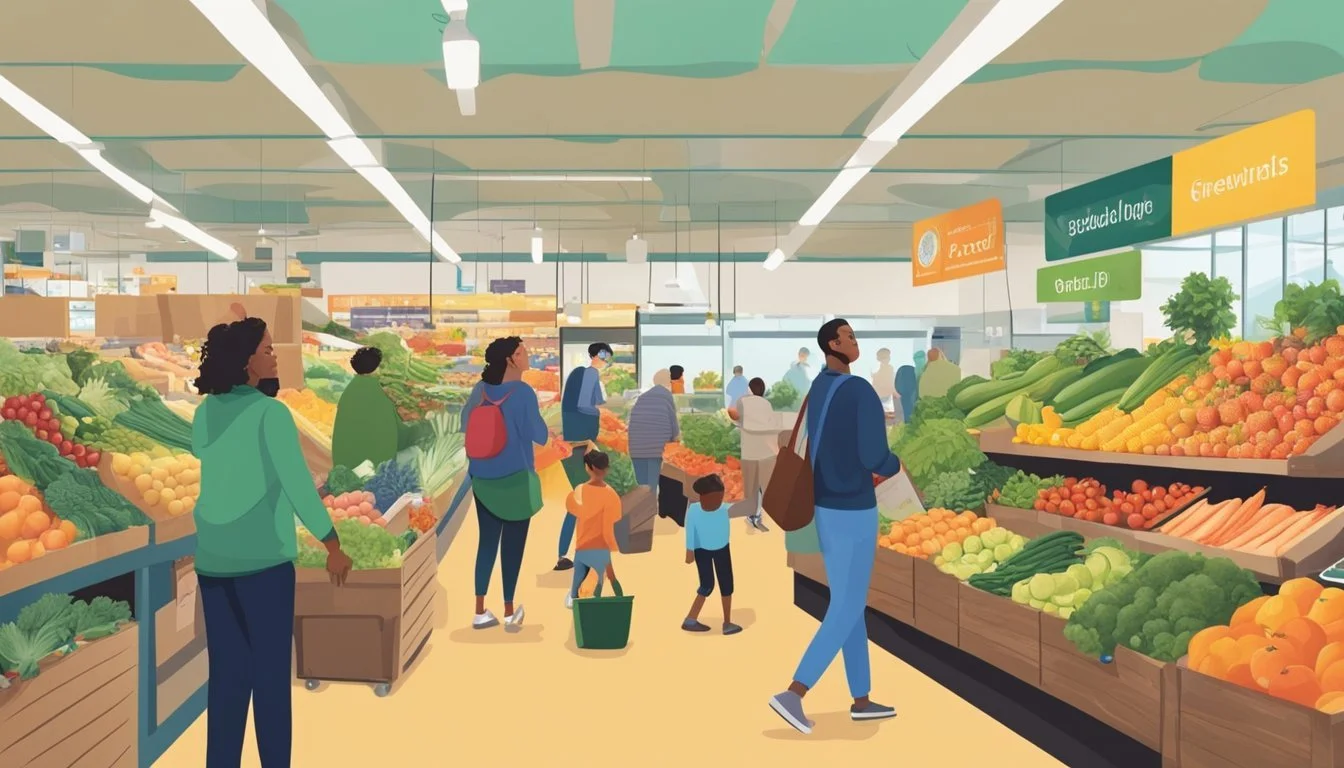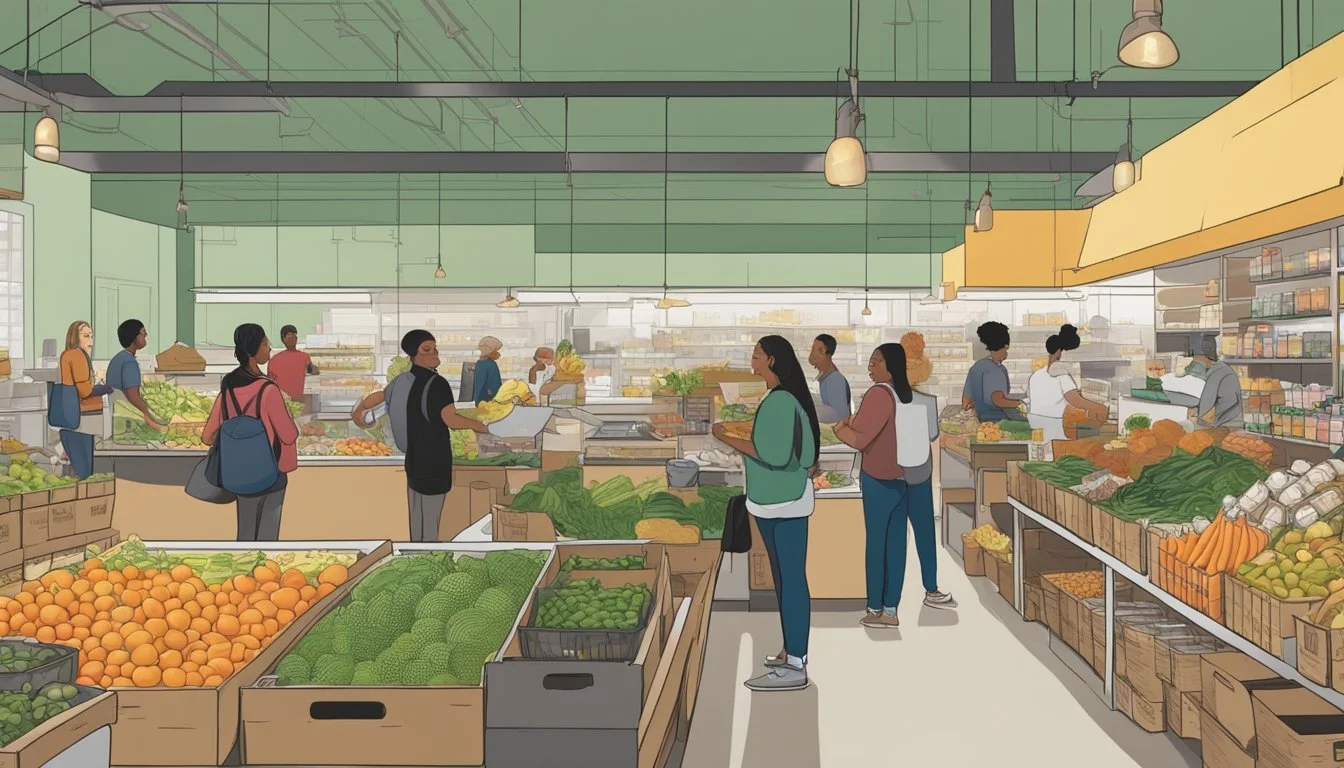Guide to Food Co-Ops in Oakland, CA
Your Essential Resource for Local, Community-Owned Groceries
Oakland, California, has become a flourishing hub for food co-ops, places where community and sustainability converge. At the heart of these co-ops is a dedication to providing access to high-quality, locally-sourced produce and goods. Unlike traditional supermarkets, these cooperatives operate on a model where the customers can often become members, thus having a say in the business's operations and sharing in its profits. This aligns with Oakland's ethos of inclusivity and collective welfare, resonating with residents who prioritize food justice and economic empowerment.
Exploring the diverse landscape of food co-ops in Oakland reveals a variety of establishments each with its unique twist on what it means to be a cooperative. The Mandela Grocery Cooperative is a notable presence, serving the West Oakland community with an assortment of well-chosen products without requiring membership for purchase. This co-op not only diversifies the local food market but also anchors itself as a communal space that promotes health and well-being. Furthermore, establishments like The Food Mill have solidified their place in the city by offering an expansive range of health-centric products, including organic produce and nutritional supplements.
The cooperative movement in Oakland extends beyond just food retail; some co-ops incorporate educational initiatives and community programs that encompass the broader vision of a cooperative enterprise. This approach fosters a sense of ownership among members and patrons, deepening the relationship between consumers and their food sources. Oakland’s food co-ops are more than just places to shop; they are vital participants in the local economy and stand as a testament to the city's commitment to collective prosperity and sustainable living.
Understanding Co-Ops
A cooperative, commonly known as a co-op, is a distinct business model grounded in collective ownership and democratic governance. Members, who are both customers and owners, drive the decision-making process and share in the profits. In the context of food co-ops, this structure promotes sustainability and community-focused retailing.
Food co-ops often embody sustainable business practices, emphasizing locally-sourced produce, fair trade partnerships, and environmentally conscious operations. The table below outlines the key components of a cooperative's structure:
Component Description Ownership Held collectively by members; democratic control. Governance Managed by elected boards; member-driven decisions. Profits Distributed among members or reinvested in the co-op. Membership Open to all willing to accept responsibilities of membership.
Membership involves an initial investment, after which members may benefit from discounts, voting rights, and a voice in the co-op's future. This structure not only allows for more equitable access to quality foods but also fosters a sense of community and local empowerment.
The emphasis on sustainability positions food co-ops as integral players in creating more resilient local economies. By prioritizing ethical sourcing and fair labor practices, they directly support and uplift local producers, contributing to the overall health of the community they serve.
History of Oakland Food Co-Ops
The foundation of food cooperatives in Oakland, also known as food co-ops, has deep roots in both the global and local community movements. The inception of these consumer-oriented enterprises in Oakland spans several decades, with locals advocating for equitable food access and community empowerment.
In the East Bay, particularly in Oakland, the emergence of Mandela Grocery Cooperative marked a critical milestone in the history of local food co-ops. It was established with a mission to address the dearth of healthy food options in West Oakland—a challenge that affected the neighborhoods significantly. The presence of multiple liquor stores and fast-food outlets, contrasted with a stark absence of full-service grocery stores, galvanized the community's efforts to initiate the Mandela Grocery Cooperative.
The cooperative began serving the residents of the San Francisco Bay Area with various goals:
Improving Access: Providing fresh produce and nutritious food options.
Local Empowerment: Offering ownership and decision-making abilities to workers and members.
Community Well-being: Focusing on the health and economic stability of the local community.
Over the years, food co-ops in Oakland have not only expanded in size, but have also played an integral role in nurturing community spirit. They serve as more than just food outlets; they are hubs for social interaction, education, and collective thriving. Additionally, their emergence has encouraged the proliferation of similar models, underscoring a profound shift toward community-oriented commerce within the city.
Benefits of Shopping at Food Co-Ops
Food cooperatives, commonly known as co-ops, offer a range of benefits that extend from enhanced nutrition to supporting fair trade practices. These community-focused markets are a source for natural foods, emphasizing quality and wholesomeness.
Emphasis on Nutrition
Shoppers at food co-ops often find a variety of fresh, nutritionally dense foods. These selections support a balanced diet, catering to those who prioritize healthful eating.
Organic Produce
Co-ops frequently stock organic produce, which reduces consumers' exposure to pesticides. These products are grown without synthetic fertilizers or genetically modified organisms (GMOs), aligning with eco-friendly agricultural methods.
Fair Trade Commitment
A commitment to fair trade is typical in these establishments. They strive to offer goods produced under fair labor conditions, ensuring that producers receive equitable compensation. This reinforces a sustainable global food economy.
Selection of Natural Foods
The shelves of a co-op are often filled with natural foods, free from artificial additives, flavors, or preservatives. This focus aids shoppers in maintaining a clean diet and promotes overall well-being.
By shopping at food co-ops, individuals directly invest in their local economy and community, fostering a sustainable food system that benefits both the consumer and the provider.
Challenges Faced by Food Co-Ops
Food cooperatives in Oakland, like their counterparts nationwide, encounter a variety of challenges. The impact of the pandemic brought significant hurdles, including supply chain disruptions and increased health and safety regulations. These factors put a strain on operations and tested the resilience of these community-focused enterprises.
Another major concern is establishing and maintaining a sustainable business model. Food co-ops focus on providing local, organic, and sometimes more expensive products, which can limit their customer base to those willing or able to pay premium prices. Additionally, they must balance the need for competitive pricing while upholding ethical sourcing and fair compensation for producers.
Food businesses, particularly small-scale operations like food co-ops, often grapple with the competition from larger, well-funded grocery chains. These chains can leverage economies of scale to offer lower prices, a broader product selection, and more aggressive marketing tactics.
They also face internal challenges related to governance and member engagement. Ensuring active participation and equitable decision-making among all members can be complex. This table summarizes key challenges:
Challenge Description Pandemic-Related Disruptions Supply chain issues, heightened safety protocols, and economic instability Sustainability of Business Model Balancing ethical practices with financial viability Competitive Market Pressures Large grocery chains dominating the market Governance and Member Engagement Maintaining democratic processes and active involvement
Food co-ops must continuously adapt to these external and internal challenges to survive and thrive in Oakland's dynamic market.
Local Food Co-Ops in Oakland
Oakland, California offers residents a selection of cooperative grocery stores that focus on providing organic and natural foods. These food co-ops are community-centric, supporting local farmers and artisans while providing health-conscious consumers with sustainable options.
Rainbow Grocery
Location: Although not located within Oakland itself, Rainbow Grocery is a notable cooperative in the nearby San Francisco area that serves many Oakland residents. Founded in 1975, it has grown to become a staple in the Bay Area for organic produce, bulk foods, and dietary-specific products.
Mandela Grocery Cooperative
Location: 1430 7th Street, Oakland, CA 94607
Hours: Weekdays 9 AM - 7 PM, Sat 9 AM - 6 PM, Sun Closed
Mandela Grocery Cooperative sits in the heart of West Oakland and is known for its dedication to community wellness and social justice. They offer a wide array of natural and organic foods, aiming to provide accessible, healthy options for the people in their community.
Co-Op Membership and Volunteer Opportunities
In Oakland, California, food co-operatives are community-owned groceries which often function on membership and volunteer involvement. Membership in these co-ops generally comes with certain perks, such as discounts or special sales exclusively for members. They might also offer the opportunity for members to participate in Buying Clubs, which are arrangements where bulk purchases can lead to cost savings for all participating members.
Membership in a co-op like Mandela Grocery Cooperative does not require membership for shopping but being a member can contribute to decision-making processes and may afford financial benefits. At certain co-ops, members can also opt to volunteer, which not only fosters a sense of community but sometimes leads to additional price discounts. It's a way in which members can directly contribute to the success and maintenance of the co-op.
Volunteer opportunities may vary from staffing events to assisting in daily operations. The California Center for Cooperative Development notes that co-ops are often founded on a shared desire to benefit the local community. As such, they are reliant on a dynamic collaboration between the staff and volunteers. This direct community engagement is essential for the co-op's ability to provide healthy food options to residents.
Entity Relevance to Oakland Co-Ops Membership Provides discounts, voting rights, and buying club participation Discounts Available for members and volunteers Volunteer Supports co-op operations and may give rise to additional discounts Buying Clubs Facilitates bulk purchasing for members
Those interested in supporting local farmers and community-based businesses through Oakland's food co-ops can consider becoming members or volunteering, both of which strengthen the cooperative movement and reinforces community ties.
Navigating the Aisles
When visiting a food co-op in Oakland, CA, shoppers can expect well-organized aisles offering a range of sustainably sourced and local products. Notably, produce and pantry essentials are often organic, underscoring a commitment to health and environmental stewardship.
Produce
In the Produce section, customers will find an array of vegetables and fruits, many of which are locally sourced and organic. Shoppers can fill their baskets with staples like leafy greens, crisp apples, and ripe tomatoes. Seasonal offerings reflect the region's harvest, ensuring fresh and flavorful options throughout the year.
Pantry Staples
The Pantry Staples aisle features essential ingredients for a well-stocked kitchen, with an emphasis on wholesome and nutritious options. Key items include brown rice and lentils, perfect for creating hearty and healthy meals. These staples not only offer versatility in a range of recipes but also provide valuable nutrients and fiber.
Specialty Foods
For those in search of distinct flavors, the Specialty Foods section showcases unique and high-quality items. Amongst these, olive oil is a noteworthy find, often available in organic varieties that promise purity and taste. Specialty foods enrich the culinary experience, adding depth to dishes that reflects the diversity of the co-op's selections.
The Role of Food Co-Ops in the Community
Food cooperatives (co-ops) serve a vital role in Oakland communities, providing more than just a place to shop for groceries. They are hubs for community support, promoting a sense of togetherness among residents, often through democratic participation and collaborative governance.
Local Food Systems: Food co-ops are staunch supporters of local food systems. They typically stock produce from nearby farms, reducing the carbon footprint associated with transportation. This support bolsters the local economy and offers residents access to fresh, seasonal foods.
Supporting Local Producers:
By sourcing from local farms and artisans, co-ops help create stable economic opportunities within the community.
They often prioritize organic and sustainable practices, contributing to healthier ecosystems.
Inclusivity and Access: Co-ops strive to be inclusive by providing various food options catering to diverse dietary needs. Some co-ops in Oakland work to address the issue of food deserts by bringing healthy food options to low-income neighborhoods, thus supporting residents who may have limited access to nutritious food.
Educational Opportunities:
Food co-ops often conduct workshops and events centered on nutrition, cooking, and sustainable living.
They empower residents with knowledge to make informed food choices.
Community Support: Food co-ops are built on the foundation of communal support. They often start as grassroots movements where residents come together to establish an alternative to corporate grocery chains. By offering a range of volunteer and employment opportunities, they facilitate community engagement and foster a sense of ownership and pride among the members.
In summary, food co-ops in Oakland are more than just stores; they are crucial components of the local fabric that enhance collective well-being and resilience.
Educational Activities and Community Events
Food co-ops in Oakland are not only hubs for sourcing nutritious and sustainable goods but also centers for community engagement and education. They offer an assortment of activities aimed at enhancing knowledge about healthy eating, sustainable practices, and the inner workings of cooperative businesses.
Nutrition Workshops: These co-ops often conduct workshops on nutrition where participants can learn about balanced diets, the benefits of organic produce, and how to read food labels accurately. Through interactive sessions, they emphasize the importance of whole foods and plant-based options for maintaining a healthy lifestyle.
Cooking Classes: To encourage the community to put nutritional knowledge into practice, cooking classes are frequently organized. These enable individuals to gain hands-on experience in preparing wholesome meals using ingredients available within the co-op.
Sustainable Business Education: Many co-ops are keen to educate about sustainable business models. They provide information on how co-ops operate, the principles of equitable business practices, and the impact of consumer choices on the environment.
Community Outreach Events: Co-ops often host events that serve to bring the community together and discuss topics such as food security, local farming, and eco-friendly living. These events foster a sense of community and collective responsibility.
Activity Type Benefits Nutrition Workshops Enhances understanding of healthy eating Cooking Classes Practical knowledge of meal prep using organic ingredients Sustainable Business Ed. Insight into ethical consumerism and cooperative structures Community Outreach Strengthens community bonds and promotes collective action
Through these educational activities and community events, Oakland's food co-ops contribute significantly to the community's knowledge about nutrition, the importance of sustainable business models, and the value of a tightly knit community that supports local and ethical food sourcing.
External Relations and Partnerships
Food cooperatives in Oakland have forged partnerships across various community sectors to enhance their reach and impact. They engage with Community-Supported Agriculture (CSA) programs, local restaurants, and other food cooperatives to build a robust food system.
Local CSAs benefit from collaborations with food co-ops by gaining a broader customer base for their produce subscriptions. These alliances enable consumers to pick up CSA shares at cooperative locations, facilitating convenience and encouraging community support for local farmers.
Restaurants in Oakland have established relationships with food cooperatives to source ingredients. Ventures like these emphasize the farm-to-table ethos, prioritizing freshness and the support of regional agriculture. Patrons of these restaurants appreciate the emphasis on community partnerships and sustainability.
Among food cooperatives, there's a shared goal to address food insecurity. Oakland-based co-ops often network to exchange best practices and resources. This inter-cooperative collaboration leads to stronger advocacy for food justice and education in the community.
Additionally, food co-ops partner with civic organizations to shape policy, exemplified by the Oakland Food Policy Council's efforts. Their united front amplifies calls for equitable food access and sustainable practices within the local food system.
Through these external relations and partnerships, food cooperatives in Oakland extend their influence and bolster a unified commitment to health equity and economic empowerment.
Partner Type Benefit to Co-op System CSA Programs Expanded market, community engagement Local Restaurants Sourcing local, sustainable ingredients Other Cooperatives Resource sharing, enhanced food justice advocacy Civic Organizations Policy influence, community health improvement efforts
Future of Food Co-Ops in the Digital Age
As the world shifts further into the digital realm, food co-ops in Oakland, CA, are navigating the balance between their community-centric ethos and the need for digital transformation. Pandemic response strategies have accelerated the adoption of technology, with co-ops quickly adapting to online platforms to maintain the supply of fresh, locally-sourced produce to their patrons. They now bolster their resilience through digital marketplaces, ensuring continued operations in the face of unforeseen challenges.
Food co-ops are exploring digital marketplaces to expand their reach. Websites and mobile apps are being utilized not only for ordering but also for educating consumers about their food sources. These platforms offer:
Convenient access to local produce.
Transparency in sourcing and pricing.
Opportunities for local farmers to connect with consumers.
When it comes to food delivery, co-ops are integrating this service to meet the expectations of convenience-oriented members. They're harnessing local delivery networks, combining the personal touch of co-op shopping with the efficiency of modern logistics. The service models include:
Direct deliveries from co-ops to doorsteps.
Collaborative models involving local delivery startups.
Digital integrations maintain the co-op's commitment to sustainability, as they prioritize eco-friendly packaging and routes to minimize their carbon footprint. Food co-ops in Oakland are not only adapting to the digital age; they are setting precedents for how community-focused food systems can flourish within it.
Bakeries and Prepared Foods
In Oakland’s vibrant food scene, co-op bakeries and outlets offering prepared foods are a staple for residents who cherish high-quality baked goods, pastries, and gourmet cuisine. They are known for their commitment to community and sustainable practices.
Three Stone Hearth
Three Stone Hearth embodies the essence of a community-oriented food cooperative, focusing heavily on sustainable and health-conscious prepared foods. The co-op specializes in traditional cuisines and fermented products, reflecting a deep respect for culinary heritage. All of their offerings are crafted using organic, locally-sourced ingredients, which supports local agriculture and ensures high-quality, nutritious products for their customers.
Baked Goods and Cuisines Offered:
Gluten-free options
Wide range of ferment-based dishes
A Taste of Denmark
A Taste of Denmark is a testament to Oakland's culinary diversity, where patrons can find an exquisite variety of pastries and cakes. The bakery prides itself on producing authentic Danish baked goods, which are made with meticulous care to ensure an authentic taste experience akin to the bakeries of Denmark.
Selection Includes:
Danish pastries
Layer cakes
Seasonal specialties
Each of these co-ops offers a distinct culinary exploration, with Three Stone Hearth focusing on nutrient-rich prepared meals and A Taste of Denmark providing a sweet journey through its Scandinavian-style offerings. Both prioritize high-quality, fresh ingredients which resonate in the taste of their products.


